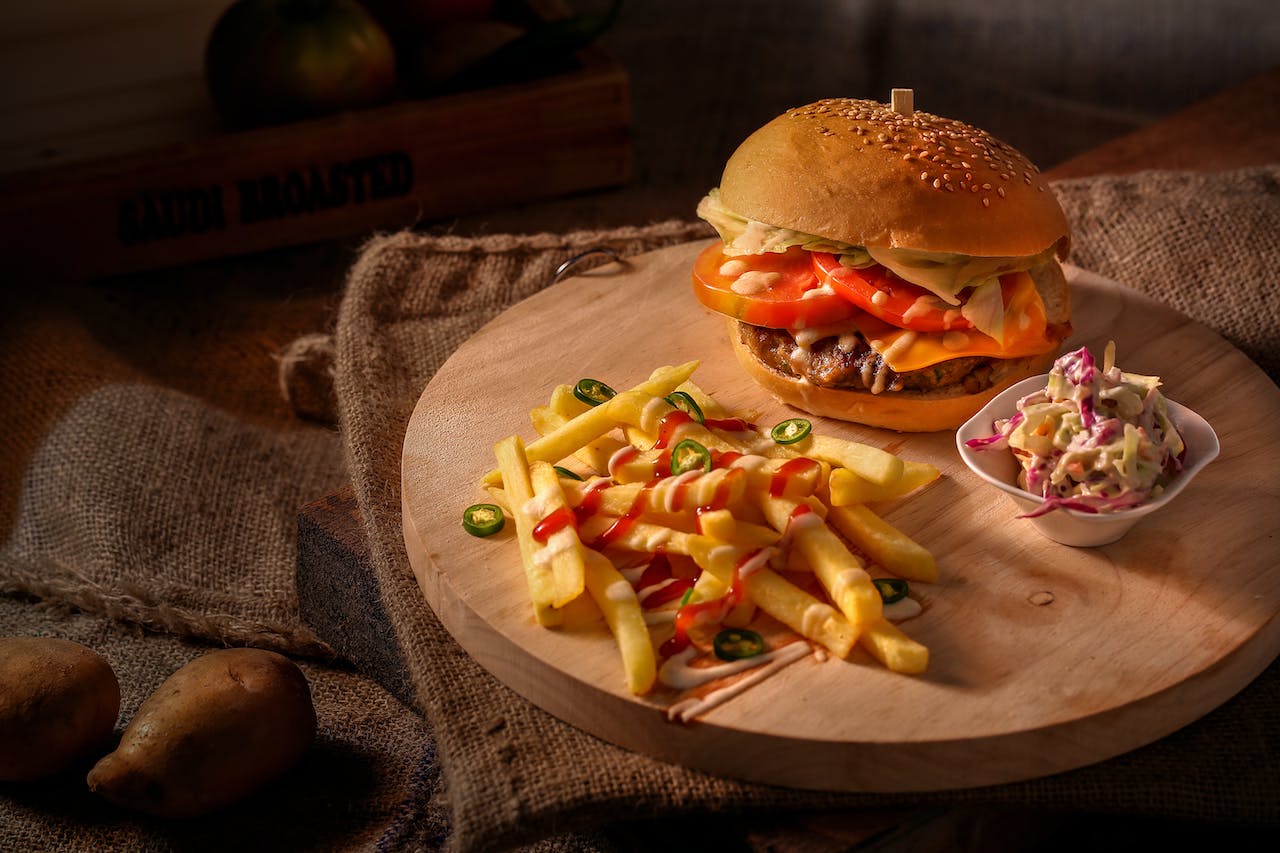More vegetables, less meat and a smaller plate – the 1970s certainly did have a different take on food in the western world. Since then, we’ve become obsessed with macronutrients, micronutrients and have more capacity to log our calories and food types than ever. Despite this, portion sizes have continued to increase in the last 50 years alongside all of the other health effects that came from overeating and obesity – namely, cardiovascular disease, diabetes and cancers.
A 2013 study by the BHF showed portion sizes in the UK have nearly doubled - curry ready meals had expanded by 50 per cent, as had the number of crisps in a family bag. Things like bagels and bread items are almost one quarter bigger in size in two decades and small biscuits are up a fifth of the size they were, to 17 per cent bigger.
The Portion Distortion report from the BHF looked at the portion sizes of 245 products sold now with the portion sizes listed in a 1993 Food Standards Agency publication showing “typical weights and portions sizes of foods eaten in Britain’. The report findings show, compared to 1993, on average;
Individual shepherd’s pie ready meals have doubled in size, increasing by 98%
A stated portion of peanuts is 80% larger
Individual chicken curry ready meals are 53% larger
A portion of crisps from a family pack has increased by 50%
Individual chicken pies are 40% larger
Meat lasagne ready meals for one are 39% larger
A portion of garlic bread is 30% larger
Chief Executive Simon Gillespie said: “Portion sizes in the UK are often inconsistent and misleading and we need to take control. It’s important we get portion sizes on products right because when people are presented with more food, they eat more food. The UK Government has not updated its information on typical portion sizes for 20 years and there is currently no legislation relating to portion sizes. It’s time for an urgent review so the portion size playing field is levelled and consumers can be helped to make healthier choices”. There is help available though, if you find yourself with weight related illnesses or looking to improve your health given the above alarming statistics.

2,000 people with Type 2 diabetes were enrolled on the NHS soups and shakes diet programme – with participants losing an average of 13kg (over two stone) in three months. Chris Askew OBE, Chief Executive at Diabetes UK, said: “We’re delighted to see the expansion of NHS England’s free weight-loss programme for people living with Type 2 diabetes. Since its launch, this low-calorie diet pilot, inspired by Diabetes UK’s ground-breaking DiRECT trial, has helped thousands of people across England access the support they need to lose weight effectively and potentially put their Type 2 diabetes in remission.
Furthermore, many people have found success through the NHS’ Couch 2 5k app, which has seen fervent popularity in the UK with people who have never been able to run before even going as far as marathon distances in their fitness and weight loss journeys. A recent YouGov poll found that 10% of adults in Great Britain have either cancelled or are considering cancelling a gym membership due to the cost of living, with these free NHS options a great place to capitalise for those feeling the pinch.
Public Health Minister Neil O’Brien said, “The (coming) start of a new year is a great time to make healthy lifestyle changes and the free NHS Couch to 5K app is a brilliant way to get fit and healthy for free, as people look to exercise for less due to the rising cost of living. Keeping fit can have a positive impact on our health, preventing risks of developing serious illness such as heart disease and diabetes - helping to reduce pressure on the NHS”.
